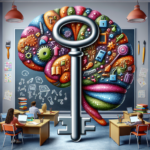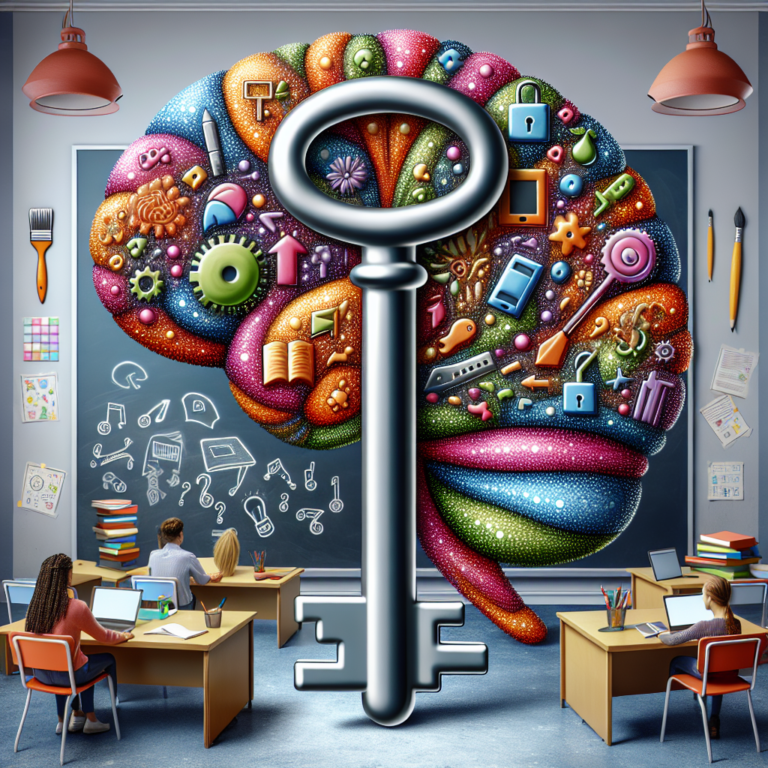
Introduction
In a rapidly evolving world brimming with information, our brains are faced with the daunting task of filtering through an overwhelming amount of stimuli to make sound decisions. The intersection of cognitive load and decision-making processes has significant implications across various sectors, from interpersonal relationships to high-stakes corporate environments. Understanding cognitive load and decision making is more than just an academic exercise; it’s essential for improving performance, enhancing user experience, and ultimately leading to better outcomes in both personal and professional contexts. In this article, we will explore the intricate dance between cognitive load and decision making, drawing on valuable insights from human factors psychology.
Understanding Cognitive Load
What Is Cognitive Load?
Cognitive load refers to the amount of mental effort used in the working memory. Developed by psychologist John Sweller in the 1980s, the theory posits that our cognitive resources are limited, making it essential to manage the information we handle efficiently. Cognitive load can be categorized into three types:
- Intrinsic Load: The inherent difficulty of the material.
- Extraneous Load: How information is presented, which can either facilitate or hinder learning.
- Germane Load: The mental effort dedicated to processing and understanding the information.
By understanding these different types of load, we can better navigate the decision-making landscape.
The Role of Cognitive Load in Decision Making
When faced with a decision, our cognitive load can significantly impact our ability to process information and draw conclusions. A high cognitive load can lead to decision fatigue, causing us to revert to simpler heuristics or biases rather than engaging in critical thinking. Conversely, a balanced cognitive load maximizes our information-processing capability, enabling more thorough and informed decision-making.
Case Study 1: Airline Pilots and Cognitive Load
One striking example of cognitive load in action is found in aviation. A study by Jensen (2015) revealed that pilots experience varying levels of cognitive load depending on their workload during flight operations. During high-stress scenarios—such as navigating during a thunderstorm—the demands placed on pilots’ cognitive resources can lead to poor decision-making, such as overlooking essential safety checks or misjudging the situation.
Analysis
This case demonstrates the critical importance of managing cognitive load in high-stress environments. By simplifying information presentation and streamlining cockpit designs, human factors psychologists can significantly enhance pilots’ decision-making abilities, ultimately leading to safer flights.
Reducing Extraneous Load
Cognitive load management is integral to effective decision making. One strategy involves minimizing extraneous load:
Optimal Information Presentation
Using clear, concise graphics or charts can significantly improve comprehension. For instance, in life-or-death medical decisions, a visually friendly layout of patient data can help medical professionals evaluate options swiftly and accurately.
Example Visualization
| Information Type | Traditional Format | Enhanced Format |
|---|---|---|
| Patient History | Long text | Infographic |
| Test Results | Tables | Color-coded signals |
| Treatment Options | List | Decision tree |
The Science Behind Cognitive Biases
Cognitive biases often arise when cognitive load is high. These biases can skew our decision-making processes. For instance:
- Anchoring
- Overconfidence
- Loss Aversion
In high-load scenarios, individuals may fall back on these biases instead of engaging in critical thinking.
Case Study 2: Consumer Behavior
A fascinating application can be seen in consumer behavior. Research by Lee et al. (2021) showed that when consumers faced a large variety of products, the cognitive load increased, resulting in less optimal purchasing decisions. Overchoice led to consumer paralysis, diminishing overall satisfaction.
Analysis
This case underscores the importance of choice architecture. By presenting fewer options or categorizing products effectively, marketers can reduce cognitive load and enhance consumers’ decision-making capabilities.
The Importance of Training and Simulation
In fields where decisions have profound implications, like emergency medicine or military operations, extensive training and simulation activities can help manage cognitive load. These training programs aim to automate certain responses so that working memory is freed up for more complex decision-making tasks.
Implications for Decision-Making
Through repetitive exposure to various scenarios, professionals can build expertise and intuitively respond to high-stress conditions, thus minimizing cognitive load during crucial moments.
Cognitive Load and Technological Innovations
With the advent of digital technologies, understanding cognitive load and its effect on decision making has never been more critical. Technologies provide tools that can either increase or decrease cognitive load based on their design.
User Interface (UI) Design
A well-designed user interface can significantly reduce cognitive load. For instance, a banking app that seamlessly guides users through transactions reduces extraneous load, allowing users to focus on the decision at hand rather than grappling with complex navigation.
Enhancing Decision-Making in Organizations
Organizations can also take proactive steps to manage cognitive load at the team level:
Decision-Making Frameworks
Implementing structured decision-making frameworks within teams can streamline processes, helping group members focus on key issues without becoming overwhelmed by unnecessary details.
Training and Development
Regular workshops focused on cognitive psychology principles can equip team members with tools for better decision-making under pressure.
Addressing Cognitive Overload in Everyday Routines
At an individual level, cognitive load affects daily decision-making as well. Here are actionable ways to mitigate overload:
- Limit Choices: Reduce the number of daily decisions by planning meals or outfits in advance.
- Mindfulness: Engage in mindfulness practices to clear mental clutter.
- Break Tasks: Chunk larger decisions into smaller, manageable parts.
Conclusion
Cognitive load and decision making are intricately linked, with profound implications for personal and professional arenas. Leveraging insights from human factors psychology enables us to enhance decision-making processes by managing cognitive load effectively. Recognizing the balance between intrinsic, extraneous, and germane loads can empower individuals and teams to make informed choices, free from the burdens of cognitive overload.
Actionable Takeaway
By understanding and applying the principles of cognitive load management, you can sharpen your decision-making skills. Whether you’re a professional navigating a hectic workday or an individual managing daily tasks, these insights can guide you toward more deliberate, effective decisions.
FAQs
1. What is cognitive load?
Cognitive load refers to the volume of mental effort and resources required for information processing in working memory.
2. How does cognitive load affect decision making?
High cognitive load can lead to simplified, biased, or less optimal decision-making, while a balanced load allows for more thorough processing and better choices.
3. What are the types of cognitive load?
Cognitive load includes intrinsic load (difficulty of material), extraneous load (how information is presented), and germane load (effort in processing information).
4. How can organizations manage cognitive load in teams?
Organizations can implement structured decision-making frameworks and offer training focused on cognitive psychology principles to improve decision-making processes.
5. How can individuals reduce cognitive overload in daily life?
Individuals can limit daily choices, practice mindfulness, and break larger decisions into smaller tasks to mitigate cognitive overload effectively.
By delving into the dynamics of cognitive load and decision making, we gain valuable insights that foster better performance and greater satisfaction in both our work and personal endeavors. Understanding these principles is not just academic; it’s an essential investment in our ability to lead fulfilling, effective lives.

















